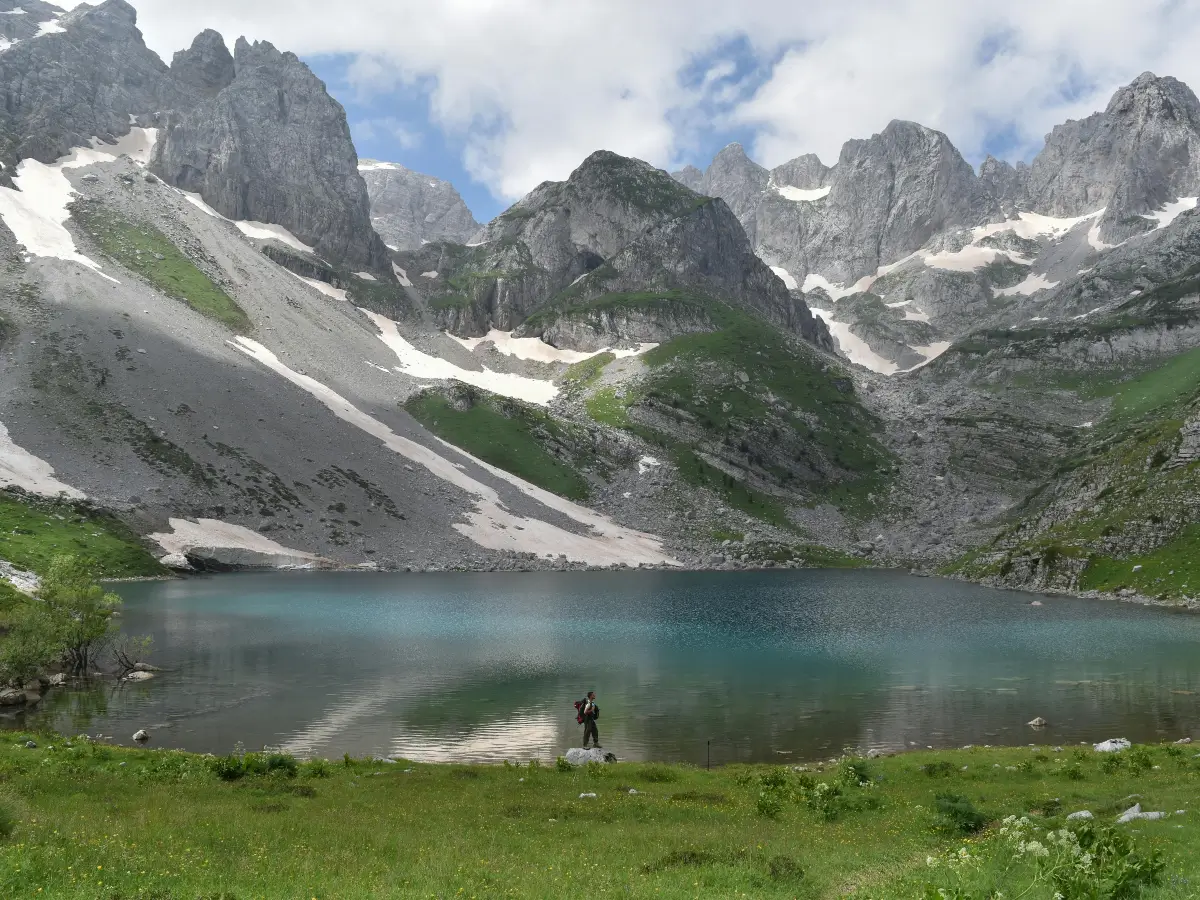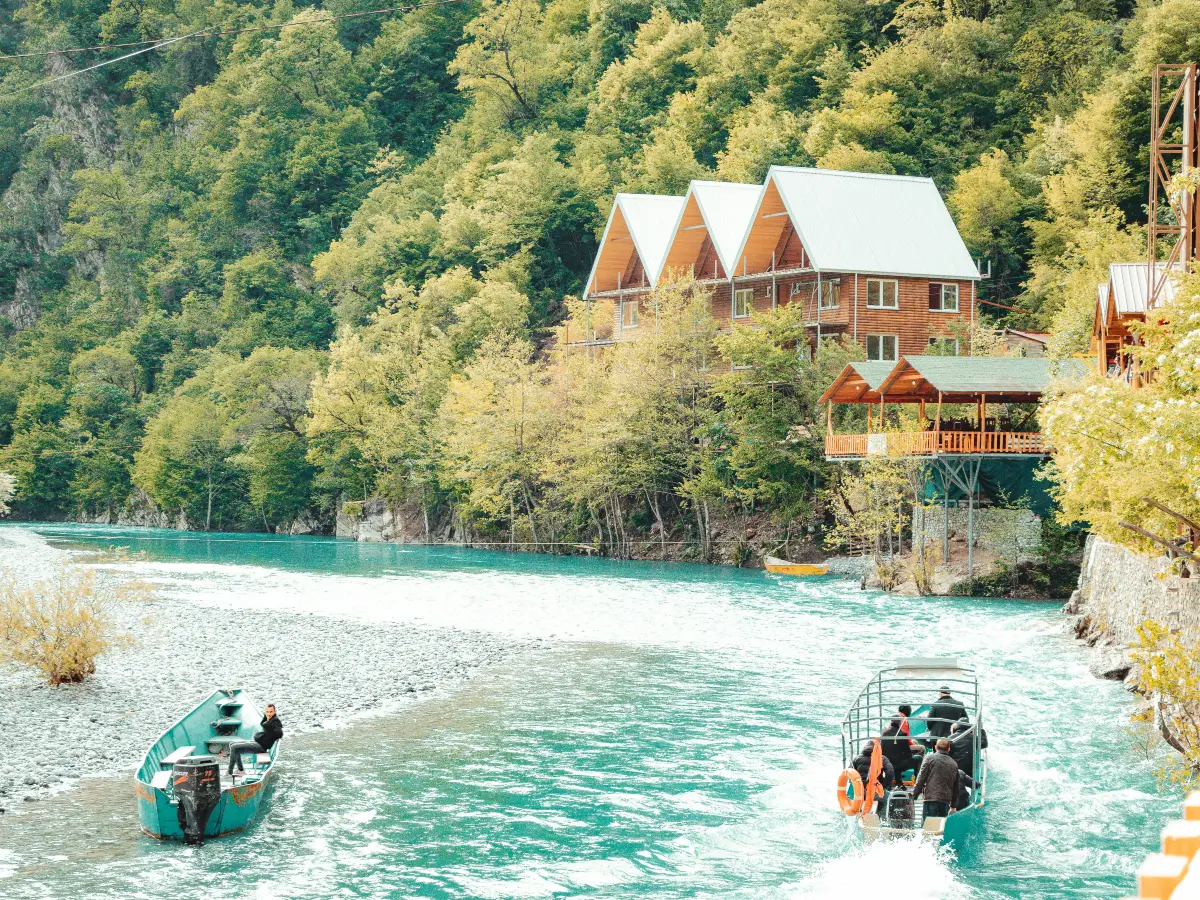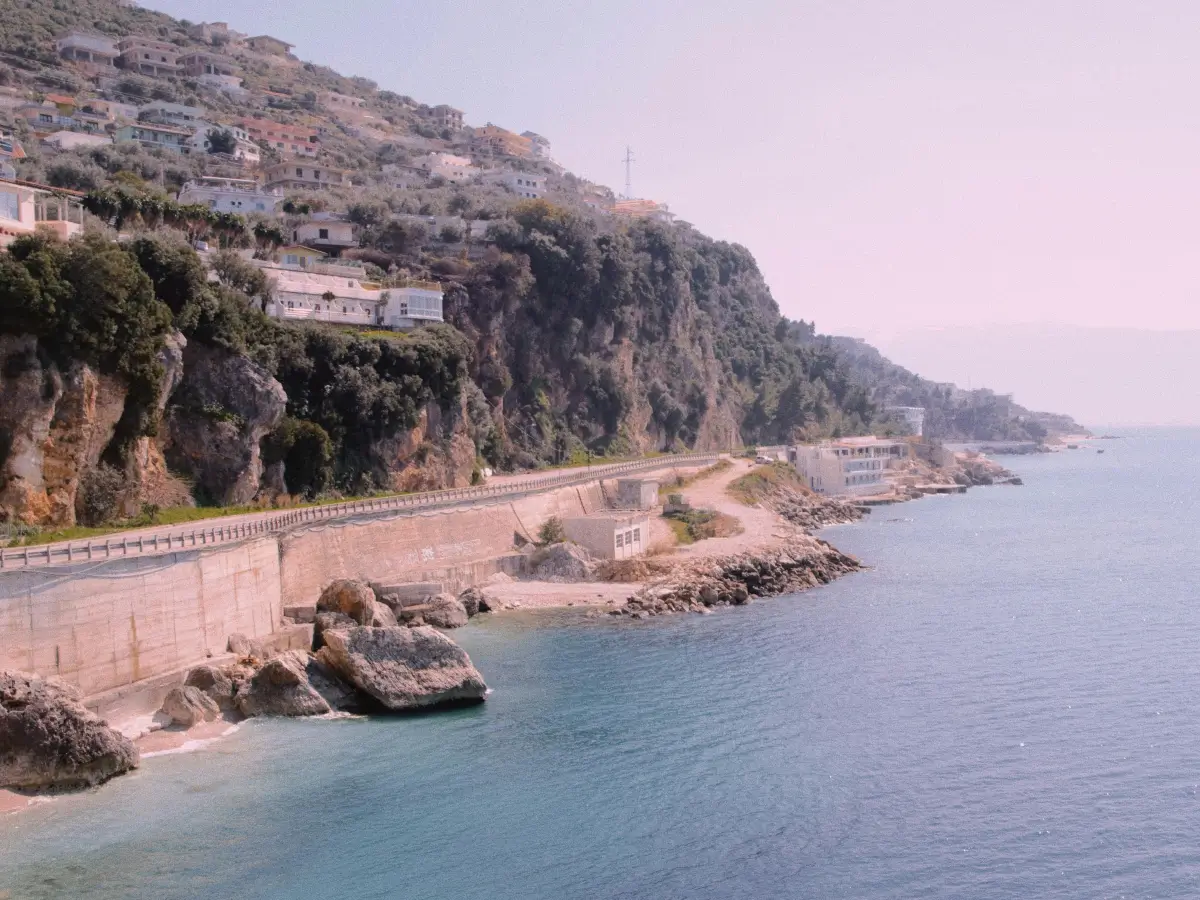Life in an Albanian village is a world away from the modern chaos of cities. It’s slower, simpler, and more deeply rooted in tradition. For locals, it’s a way of life passed down for generations. For foreigners, it’s an unexpected discovery — one that often leaves a lasting impression.
Albania’s rural communities are built around values that have withstood time: family, respect, honor, and connection to the land. Whether you’re considering relocating or simply curious about daily life in the countryside, here’s what to expect when living in an Albanian village.

Time slows down — and that’s the point
In an Albanian village, the pace of life follows natural rhythms. Mornings begin early, often with the sound of roosters, church bells, or distant farm work. Coffee is slow and social. Neighbors greet each other in the street. Daily routines revolve around what needs to be done — not what time the clock says.
There are fewer distractions, fewer schedules, and far more attention to the present moment. You notice the change in seasons. You remember your neighbors’ birthdays. You learn to live with the land, not against it.
Hospitality is not optional — it’s automatic
One of the most defining aspects of rural Albanian life is the strength of its hospitality. Guests are considered sacred, and if you move into a village, expect to be welcomed immediately — with coffee, food, and conversation.
This isn’t just a tradition; it’s part of the village identity. Even if you don’t speak the language, your presence will be noticed, respected, and likely embraced. People will ask where you’re from, what you’re doing there, and how they can help. It’s not small talk. It’s community.
The daily rhythm is simple, physical, and personal
Living in a village means reconnecting with a lifestyle that’s more hands-on and grounded. Most residents are involved in agriculture, small-scale livestock, or seasonal trades. You’ll see people tending gardens, baking bread, chopping firewood, or repairing stone walls — often by hand.

Many villagers grow their own food, produce their own olive oil or wine, and share seasonal harvests with neighbors. There is pride in doing things yourself, and status is measured more by reputation than material success.
Here’s what daily life often includes:
-
Preparing food from scratch, often with homegrown ingredients
-
Walking to neighbors’ homes instead of messaging them
-
Helping others during planting, harvesting, or building seasons
-
Attending weddings, baptisms, and funerals as a community event
-
Celebrating religious and seasonal festivals with local customs
-
Spending evenings outdoors, especially in spring and summer
This way of life may seem unfamiliar at first, but many who try it find it unexpectedly healing.
Life is peaceful — but not always easy
While village life is deeply rewarding, it comes with its own challenges. Infrastructure is improving, but not always consistent. Water pressure may fluctuate. Power outages may happen. Mobile signal can be weak. In some remote villages, roads may be narrow or unpaved.
Access to healthcare, supermarkets, and banking can require a trip to the nearest town. Winters can be cold, and summers can be dry. If you don’t speak Albanian, communication may be limited — although gestures and goodwill go a long way.
But despite the practical limits, many people find the lifestyle more meaningful. It brings independence, community, and a connection that’s missing in modern urban life.

Foreigners are rare, but welcome
While most foreigners settle in Albania’s cities or coastal areas, a few choose village life — especially those seeking simplicity, self-sufficiency, or cultural immersion. Some buy traditional stone houses and restore them. Others rent homes and slowly integrate.
Foreigners are often treated with curiosity and warmth. Elders may take pride in explaining traditions. Younger people may practice their English. Children wave in the street. Your presence can even spark small change — from new ideas to simple friendships.
A place where values still matter
Living in an Albanian village isn’t about escaping life. It’s about rediscovering it. It’s a place where people know each other by name, where time is shared not sold, and where identity comes from land, language, and family — not from screens or speed.
For some, it may feel too quiet. For others, it’s the peace they’ve been searching for.